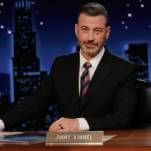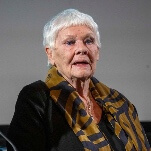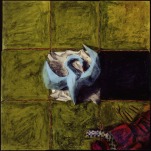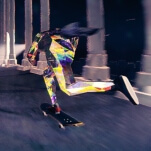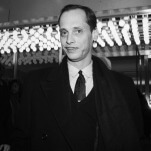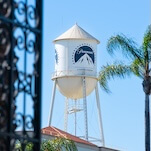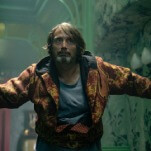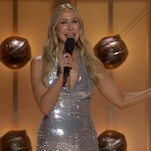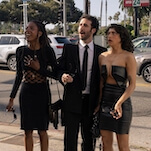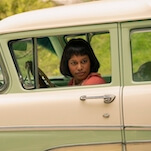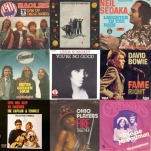Given the “Carnival Of Life” theme that always pervaded Federico Fellini’s work—his life as an artist almost literally takes the form of a three-ring circus in his autobiographical masterpiece 8 1/2—it was, as Fellini himself admits, inevitable that he would devote an entire movie to the subject. Produced in 1970 for Italian television, The Clowns is a loose, semi-experimental/semi-documentary/semi-fictional essay on circus jesters, their presence in the culture, and their profound affect on Fellini’s way of thinking. Though nowhere near as radical as Orson Welles’ F For Fake three years later, the film fiddles with the form in similarly libertine ways, zipping back and forth in time, bringing Fellini and friends into the picture, and incorporating vast chunks of a real big-top performance. It feels haphazardly conceived and rudderless at times, but it’s a fine supplement to Fellini’s filmography, pulling back the curtain on his favorite cinematic metaphor.
The dreamlike opening shows young Fellini peering out of his bedroom window late at night, as workers labor to hoist a large circus tent. His boyish excitement and wonder are palpable, but when the action circles back to him later on, after we’ve seen several circus acts perform, Fellini reveals a surprising ambivalence about clowns. Between their chalked, ghastly, drunken faces and “atrocious” gags, the clowns frighten and repel him even as he’s drawn to the circus itself. From there, The Clowns launches into seriocomic vignettes about “clowns” in other villages, like a foot-tall nun or a mentally disturbed person who can recite every Mussolini speech verbatim. The hall-of-mirrors effect intensifies when the real Fellini shows up to ruminate as a camera crew trails him, and Geraldine Chaplin and La Dolce Vita goddess Anita Ekberg turn up for appearances.
The most compelling scenes in The Clowns are simply performers performing: Fellini stations his camera like a front-row spectator and watches the circus play out in a compressed rush, with strongmen, lion-tamers, and goofs all getting their few minutes. The director’s philosophical connection to his subject is obvious to anyone even casually interested in his features, and the tone he takes here is familiar, oscillating between harried and whimsical on one end, and sentimental on the other. But The Clowns feels slight, intermittently beautiful—composer Nino Rota does particularly supple work here—but too much like a man writing his own footnotes.
Key features: The Clowns is spine number 001 for Raro Video USA, and the company has set the bar Criterion-level high. The packaging includes a 50-page booklet with Fellini’s notes and drawings on the film, and the two main supplements—an illuminating 45-minute visual essay by film historian Adriano Aprà and “Matrimonial Agency,” a 16-minute Fellini short extracted from the 1953 anthology film Love In The City—are equally generous.


